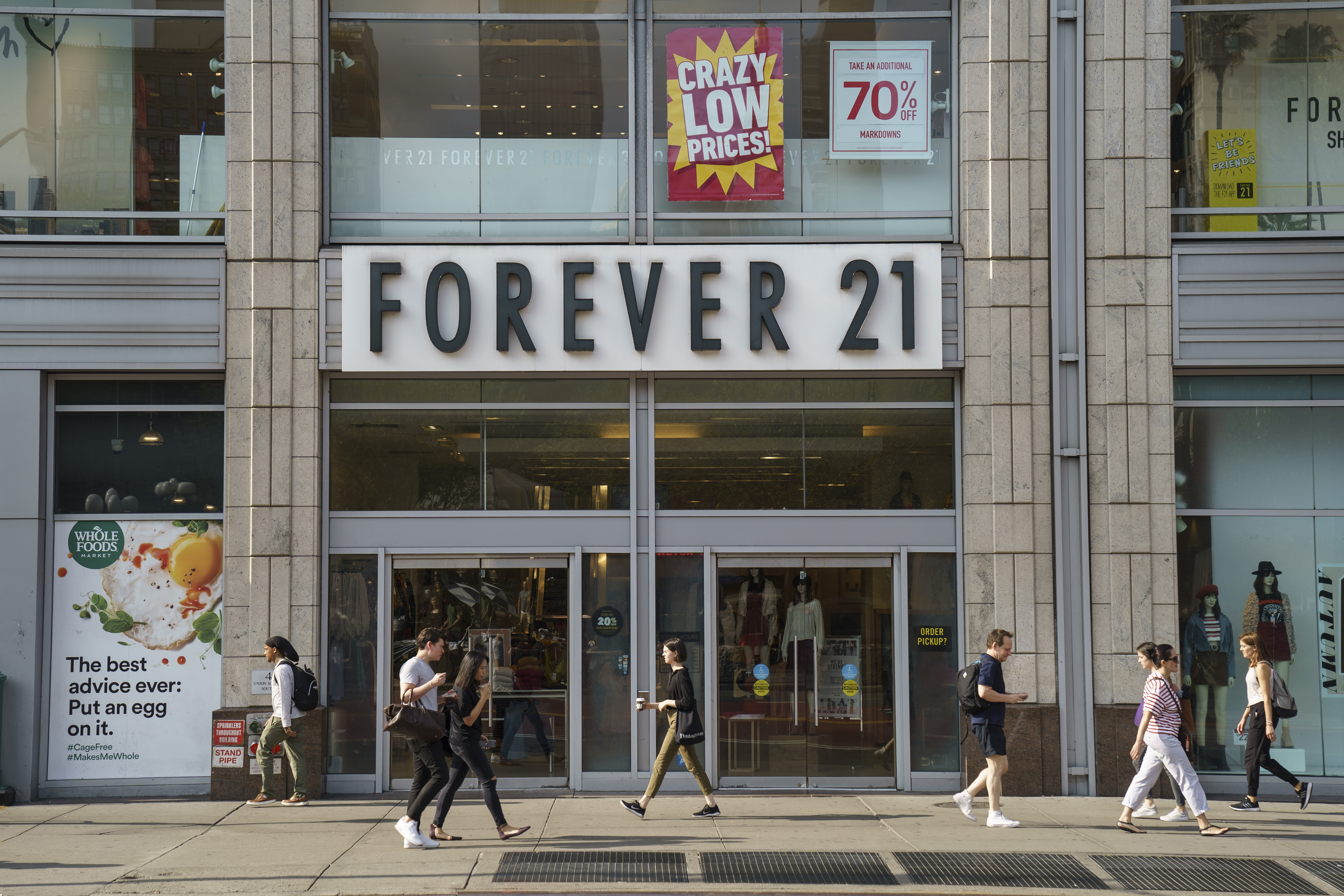Forever 21 files for bankruptcy
The company's business model has failed as consumer behaviours have evolved, but they hope to live to fight another day.


A free daily email with the biggest news stories of the day – and the best features from TheWeek.com
You are now subscribed
Your newsletter sign-up was successful
Fashion retailer Forever 21 has filed for bankruptcy, jeopardising almost 300 UK jobs, as analysts claim the chain failed to adapt to consumers’ shift away from disposable fashion and physical retail stores.
The Chapter 11 bankruptcy filing, made in the US on Sunday night, will protect the company from its creditors, and allows the Los Angeles-based retailer to continue operations in an attempt to return to profitability, but it will close up to 178 stores in the US.
Forever 21 operates three retail locations in the UK - in London, Birmingham, and Liverpool - employing over 290 people. The Liverpool location closed over the weekend, but the Liverpool Echo reports that it was open for business again as of Monday.
The Week
Escape your echo chamber. Get the facts behind the news, plus analysis from multiple perspectives.

Sign up for The Week's Free Newsletters
From our morning news briefing to a weekly Good News Newsletter, get the best of The Week delivered directly to your inbox.
From our morning news briefing to a weekly Good News Newsletter, get the best of The Week delivered directly to your inbox.
“Founded in 1984, Forever 21 has 815 stores in 57 countries. Last week, the retailer said it would stop trading in Japan and close all 14 stores there at the end of October,” The Guardian reports. “The company plans to leave most of its locations in Asia and Europe, but will continue to operate in Mexico and Latin America.”
In an online statement to its US customers, the company said it had not yet decided which other stores would close, as that decision was subject to negotiation with landlords and other considerations.
“Our stores are open and it will continue to feel like a normal day – you will not see any changes in our stores, gift cards will continue to be accepted and our policies, including returns and exchanges, remain the same,” it said.
The company has reportedly secured $350 million in financing, including $275 million from JPMorgan Chase, says NPR. “An additional $75 million in new capital from TPG Sixth Street Partners will allow the company to continue daily business such as processing gift cards, exchanges and reimbursements.”
A free daily email with the biggest news stories of the day – and the best features from TheWeek.com
Focusing on the UK market, The Independent points out that “if Forever 21 closes its UK stores, it will join an army of brick-and-mortar retailers in Britain that have wobbled or collapsed outright in recent years. Among the more high-profile failures, Debenhams and L.K.Bennett went into administration in the spring, while House of Fraser and Coast met the same fate last year.”
–––––––––––––––––––––––––––––––For a round-up of the most important business stories and tips for the week’s best shares - try The Week magazine. Get your first six issues free–––––––––––––––––––––––––––––––
Analysts agree that the company had simply not done enough to adapt to changing consumer behaviours.
“They used to have a bit of an older customer, but customers have become more conscious of where they spend their dollars. They want sustainability, they want to feel represented and I don’t think Forever 21 particularly stood for any of this,” said Gabriella Santaniello, founder of retail research firm A-Line Partners, told Reuters.
“Fast fashion isn’t dead; it’s just being reinvented,” says Anne D'Innocenzio in the Associated Press. “Swedish chain H&M, which has struggled to keep up with competitors, is showing signs of a comeback and is reinventing itself by offering more eco-friendly fashions. The chain, which once set the standard for speed by flying in frequent small batches, is also digitising certain areas of its manufacturing process.”
Moreover, the company’s retail model was outdated. “Forever 21’s large stores have been the key to their downfall. How can you have profitability on sales per square foot with these large stores?” said Jane Hali, of research firm Jane Hali & Associates.
“Consumers shifting their purchases from traditional stores to online are a big part of the problem. In fact, consumer spending remains strong and unemployment is at about a half-century low below 4%,” says CNN Business.
Citing data from research firm Coresight, the broadcaster reports that “US retailers this year have already announced more than 8,200 store closings - well above the previous record of 6,700 in 2017... by year's end, the annual tally could reach 12,000”.
William Gritten is a London-born, New York-based strategist and writer focusing on politics and international affairs.
-
 Antonia Romeo and Whitehall’s women problem
Antonia Romeo and Whitehall’s women problemThe Explainer Before her appointment as cabinet secretary, commentators said hostile briefings and vetting concerns were evidence of ‘sexist, misogynistic culture’ in No. 10
-
 Local elections 2026: where are they and who is expected to win?
Local elections 2026: where are they and who is expected to win?The Explainer Labour is braced for heavy losses and U-turn on postponing some council elections hasn’t helped the party’s prospects
-
 6 of the world’s most accessible destinations
6 of the world’s most accessible destinationsThe Week Recommends Experience all of Berlin, Singapore and Sydney
